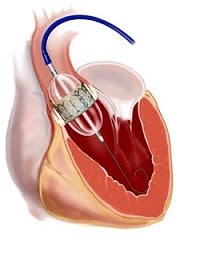By Anna I. Koulova, MD, FACC, Cardiology
Did you know 90 percent of women have one or more risk factors of developing heart disease? The American Heart Association states that cardiovascular diseases, including stroke, claim a woman's life about every 80 seconds. Fortunately, about 80 percent of cardiovascular diseases can be prevented.
Learn about causes, symptoms, and treatments for women’s heart disease to help reduce your risk.
Anna Koulova, MD, is a cardiologist with Stamford Health. She specializes in the diagnosis and treatment of the heart and cardiovascular system. Learn more about Dr. Koulova.
Did you know 90 percent of women have one or more risk factors of developing heart disease? The American Heart Association states that cardiovascular diseases, including stroke, claim a woman's life about every 80 seconds. Fortunately, about 80 percent of cardiovascular diseases can be prevented.
Learn about causes, symptoms, and treatments for women’s heart disease to help reduce your risk.
Heart Attack Symptoms for Women
- Some heart disease symptoms differ for men and women. In addition to chest pain, women should watch for:
- Difficulty breathing or shortness of breath
- Discomfort in one or both arms
- Dizziness
- Indigestion or upset stomach
- Lasting pain, pressure, or tightness of the chest
- Nausea or vomiting
- Soreness in the abdomen, neck, jaw, or shoulder
- Sweating
- Unusual fatigue
Causes for Different Symptoms
Women experience different symptoms than men because women can more frequently have a condition called small vessel heart disease or coronary microvascular disease (CMD). CMD is a disease of the smaller heart arteries, not of the main arteries, and is therefore more difficult to diagnose.Don't Delay Care
Put your health first and get care right away if you feel different than you did before, or routine activity becomes a struggle.Am I at Risk for Heart Disease?
Heart disease risk factors for women include:- Depression and stress
- Diabetes
- Family history of heart disease
- High blood pressure
- High cholesterol
- Inflammatory diseases such as rheumatoid arthritis and lupus
- Lack of physical activity
- Menopause
- Obesity
- Pregnancy complications such as high blood pressure or diabetes
- Smoking
Reduce Your Risk with Lifestyle Changes
Be sure to find time to have routine visits with your primary care provider or cardiologist. Ask them about how to prevent heart disease and improve your overall health.Become More Active
Frequent inactivity can increase your risk of heart disease. A few minutes of exercise each day makes a big difference over the years. Build up to the recommended 150 minutes each week of exercise when you start with:- Moving 15 minutes a day
- Walking 30 minutes five days a week
Get a Personalized Meal Plan
Obesity and diabetes are both risk factors for heart disease. Meet with a Stamford Health nutritionist or cardiologist to get a custom meal plan that meets your goals and preferences. They will help you improve your metabolism, prevent disease, and lose or maintain a healthy weight by:- Following the Mediterranean diet that builds meals around plant-based foods
- Lowering your blood pressure by reducing your sodium intake with the DASH diet
- Reducing carbohydrates such as pasta, bread, rice, and potatoes
Quit Smoking
Smoking causes plaque to build up in the arteries of your heart and can cause permanent damage. Lower your risk of heart and circulatory system problems, including heart attack and stroke with, the Smoking Cessation Program at Stamford Health.Diagnosing Heart Disease in Women
As with many health conditions for both men and women, early detection is key. Heart disease in women is common but underdiagnosed because plaque and changes in women’s heart vessels are sometimes more difficult to diagnose if involving smaller heart arteries, as mentioned above with CMD. Trust the cardiology team at the Heart and Vascular Institute (HVI) to get a detailed and accurate diagnosis for your heart and vascular condition with:- EKG
- Blood tests
- Echocardiography and stress testing
- Cardiac catheterization
- Cardiac magnetic resonance imaging (CMRI)
Cardiac MRI
Initial cardiac testing may not be able to tell the full story. That’s why Stamford Health is the only healthcare provider in Fairfield County to offer cardiac magnetic resonance imaging (MRI) to take a closer look at your heart's structure and blood vessels. Cardiac MRIs allow your cardiac team to diagnose an even wider array of heart conditions. This technique also aides with earlier detection of different heart diseases.Treatment Options for Women with Heart Disease
When it comes to your health, turn to Stamford Health’s Heart and Vascular Institute (HVI). You’ll benefit from the expertise of a wide range of heart and vascular specialists who provide the highest level of compassionate care that puts you first.Anna Koulova, MD, is a cardiologist with Stamford Health. She specializes in the diagnosis and treatment of the heart and cardiovascular system. Learn more about Dr. Koulova.
Featured Expert/ Author















)